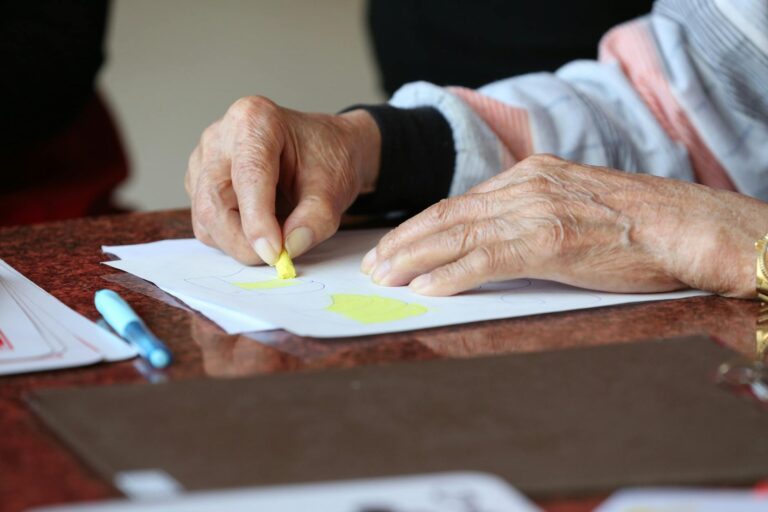Alzheimer’s disease is a progressive brain disorder that affects millions of people worldwide. It is a form of dementia that causes memory loss, confusion, and difficulty performing daily tasks. As the disease progresses, it can become challenging for those with Alzheimer’s to manage their medication schedule.
Medication reminders are essential for individuals with Alzheimer’s disease as they often struggle with remembering to take their medication at the right time or in the correct dosage. In this article, we will explore why medication reminders are important for Alzheimer’s patients and various options available to help them stay on track with their medications.
Why Medication Reminders are Important for Alzheimer’s Patients
One of the main symptoms of Alzheimer’s disease is memory loss. This can make it challenging for individuals to remember important things such as taking their medication. According to the Alzheimer’s Association, about 80% of people with Alzheimer’s have trouble managing their medications.
Missing doses or taking medications at the wrong time can have serious consequences for Alzheimer’s patients. It can lead to a decline in their health, worsening of symptoms, and could even result in hospitalization.
Medication reminders not only help individuals with Alzheimer’s to take their medication on time but also provide a sense of independence and control over their health. It can also ease the burden on caregivers who may have to constantly remind their loved ones to take their medication.
Types of Medication Reminders for Alzheimer’s Patients
1. Pill Organizers
Pill organizers are plastic containers with compartments for each day of the week, divided into morning, afternoon, and evening doses. They can be helpful for Alzheimer’s patients who have difficulty remembering if they have taken their medication or not.
Caregivers or family members can fill these organizers weekly, making it easier for patients to take their medication independently. However, it is essential to ensure that the medications are correctly labeled and placed in the correct compartments to avoid confusion.
2. Alarm Clocks or Timers
Alarm clocks or timers can be set to go off at specific times to remind Alzheimer’s patients to take their medication. They are particularly helpful for individuals who have a strict medication schedule or those who tend to forget easily.
Some alarm clocks and timers also come with visual or vibrating cues, which can be helpful for individuals with hearing difficulties or those who may have trouble hearing traditional alarms.
3. Smartphone Apps
With the increasing use of technology, many medication reminder apps have been developed specifically for Alzheimer’s patients. These apps can be downloaded onto smartphones and can be customized to send reminders at specific times for each medication.
Some apps also have additional features such as tracking medication intake, alerting caregivers if a dose is missed, and providing a list of medications and dosages. However, it is essential to ensure that the app is user-friendly and easy to navigate for individuals with Alzheimer’s.
4. Medication Dispensers
Medication dispensers are similar to pill organizers but come with built-in alarms and automatic dispensing functions. These devices can be programmed to dispense the correct medication at the right time, eliminating the need for manual sorting.
Some medication dispensers also come with features such as voice prompts, visual alerts, and the ability to lock the dispenser to prevent accidental overdosing.
Tips for Implementing Medication Reminders for Alzheimer’s Patients
1. Make a Schedule and Stick to It
Having a schedule for medication intake and sticking to it can help individuals with Alzheimer’s remember when to take their medication. It is essential to establish a routine and try to take medications at the same time every day.
2. Use Multiple Reminders
Using different types of reminders can be more effective than relying on just one method. For example, a combination of a pill organizer and an alarm clock may work better for some individuals than just using one method alone.
3. Keep Medications in a Safe Place
It is essential to keep medications in a safe and secure place to prevent accidental overdosing or ingestion of the wrong medication. Make sure to label medications clearly and store them in a designated area, away from children and pets.
4. Involve the Individual in the Process
Involving the Alzheimer’s patient in the process of managing their medications can give them a sense of control and responsibility. This can also help them feel more independent and give them a purposeful task to do.
5. Seek Professional Help
If managing medication reminders becomes too overwhelming, it is important to seek professional help from a doctor or pharmacist. They can provide advice on the best methods for medication management and even offer medication therapy management services.
In conclusion, medication reminders are crucial for individuals with Alzheimer’s disease to ensure they take their medications correctly and on time. With the right tools and strategies, caregivers can help their loved ones maintain their health and independence. It is also important to regularly review and adjust medication reminders as the disease progresses. Remember, medication adherence is key to managing symptoms and improving the quality of life for individuals with Alzheimer’s disease.





